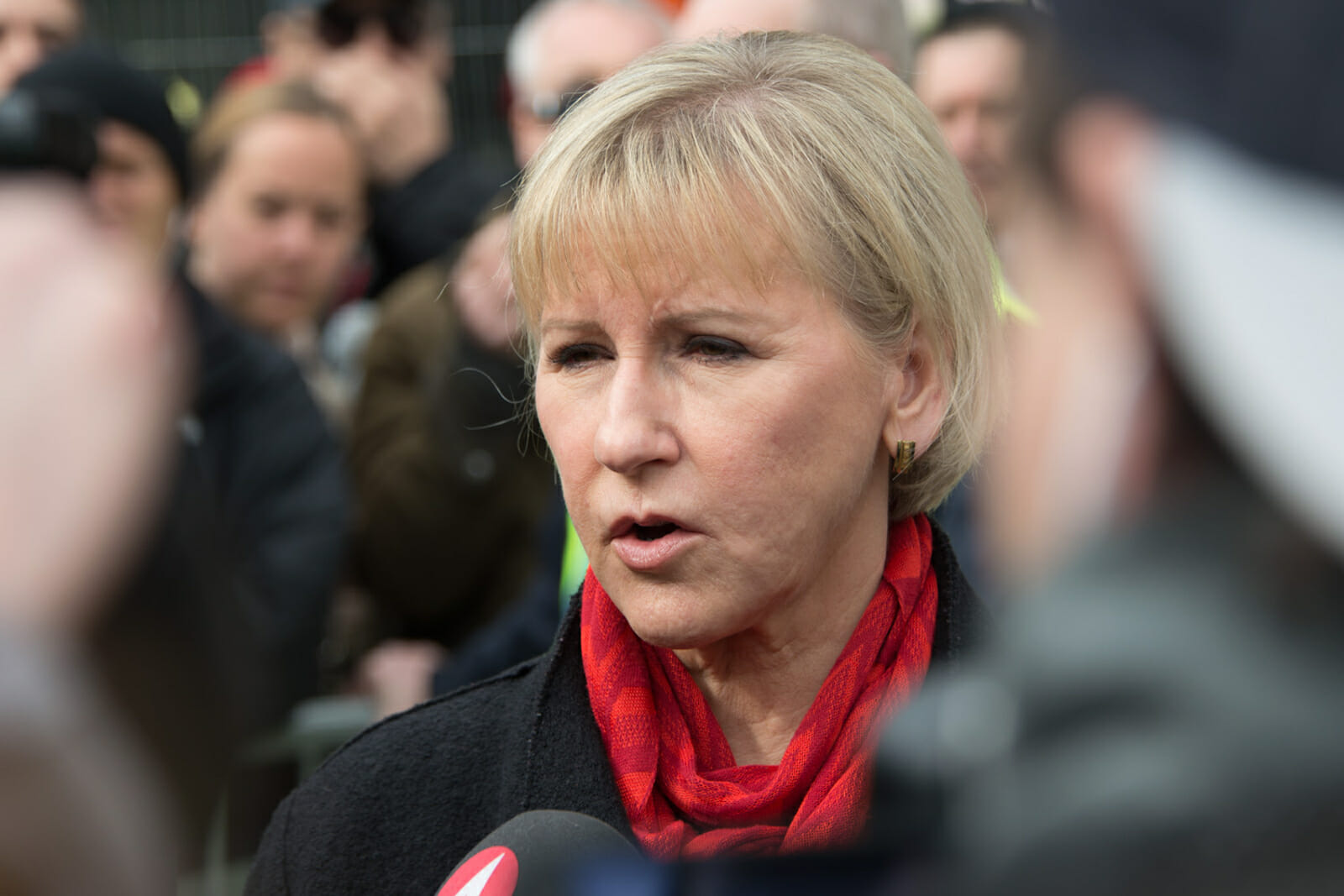
What is a Feminist Foreign Policy? Should the U.S. Adopt It?
Feminist foreign policy is viewing policies through a gendered lens, in which states promote policies to achieve gender equality. For a fuller explanation, Rollie Lal and Shirley Graham write: “Gender equity and a gender agenda are two ingredients of a ‘feminist foreign policy’ – an international agenda that aims to dismantle the male-dominated systems of foreign aid, trade, defense, immigration, and diplomacy that sideline women and other minority groups worldwide. A feminist foreign policy reenvisions a country’s national interests, moving them away from military security and global dominance to position equality as the basis of a healthy, peaceful world.”
With Kamala Harris as the first female vice president, her position will certainly not be the last. Every decision that Harris makes as vice president will likely be scrutinized. Nevertheless, her status symbolizes the goals women can reach, and the treatment women endure, especially women of color. Harris represents intersectionality.
The more we address feminism and debunk the associated negative connotations, the more awareness will transpire from the bottom-up approach propelling those to break away from society’s standards, therefore changing the perception of what gender equity means. Nonetheless, a feminist approach requires further reflection and examination of the inequalities that stem from the patriarchal social system and seeking approaches to challenge the systems of oppression, marginalization, and exclusion in domestic and foreign policy.
The U.S. is following in the footsteps of other countries turning to feminist approaches. In 2014, Sweden became the first country to adopt a feminist foreign policy. Additionally, 79 countries have implemented national action plans to support United Nations Security Council Resolution 1325, on women, peace, and security. Here in the United States, the Biden administration has proposed uplifting women and girls which will have global ramifications. President Biden signed an executive order implementing the Gender Policy Council on International Women’s Day. The administration is putting gender equity at the forefront of foreign policy and national security.
The White House Gender Policy Council includes the advancement of gender equality both domestically and globally by combatting systemic discrimination, increasing economic security, and better access to healthcare. It is hoped that this will have a positive impact on women of color who face structural inequalities. This new approach will include engagement with non-profits and community-based organizations.
The feminist theory encompasses the notion that a gender perspective broadens the scope in understanding gender and policy complexities. The feminist perspective articulates that inequality and economic instability prevent women and girls from achieving parity in a globalized world. Although there are differences that separate women’s status by their race, class, and ethnicity, women share the commonality of being disproportionately located at the bottom of the socio-economic scale.
Several years back, Chimamanda Ngozi Adichie wrote: “But here is a sad truth: Our world is full of men and women who do not like powerful women. We have been so conditioned to think of power as male that a powerful woman is an aberration. And so she is policed. We ask of powerful women: Is she humble? Does she smile? Is she grateful enough? Does she have a domestic side? Questions we do not ask of powerful men, which shows that our discomfort is not with power itself, but with women. We judge powerful women more harshly than we judge powerful men.”
I think about that quote a lot as I contribute to conversations about how women should behave in society and in what role I play in this society. To the future women in my lineage and those I cross paths with, to the men I will encounter, I shall raise awareness and reflect on the importance of women’s equality in the domestic and international spheres to advocate for increased gender parity.
Women do not need to be protected but given a platform to raise their concerns and the tools to address gender equity issues. For example, misogynistic attitudes disproportionately affecting women of color. We live in a time where women of color are breaking glass ceilings, bulldozing old pavements, and constructing new pathways to build a solid base for women to walk through for longevity and stability to foster growth.
During the pandemic, there has been an increase in domestic violence worldwide, yet women have changed their societies, reclaiming their power. We see this drive in Argentina, where women and civil society organizations lobbied lawmakers against criminalizing abortion, becoming the third country in Latin America to legalize abortion. In Nigeria, women are at the forefront of the Special Anti-Robbery Squad protest. In Belarus, women are protesting for democracy, fair elections, freeing political prisoners, and punishing state officials for ordering violence on peaceful protestors.
Despite the international community’s commitment to promoting gender equality, such as the Sustainable Development Goal 5: Gender equality, the United States should promote, adhere to, and prioritize gender equity for a just society. Women are needed in the public domain because, without women, this growing consciousness and the challenges will be unjust. We need women to continue challenging the perspectives of what women are capable of. When women are not represented, our male counterparts view policy through tinted lenses in seeking approaches to challenge the system of oppression, marginalization, and exclusion and are unable or unwilling to challenge patriarchal systems of power.
